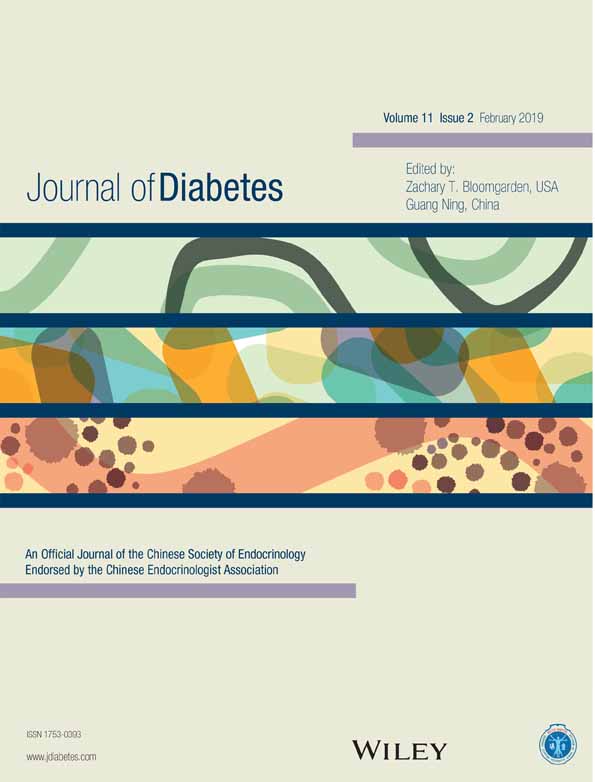Supplements
补充剂
In the US, estimated sales of vitamins and nutritional supplements increased from approximately US$17 to US$36 billion from 2000 to 2017,1 substantiated by other estimates,2 comprising a substantial fraction of the estimated US$450 billion spent in 2016 on medicines.3 In the current issue of the Journal, Wilson reports analysis of the 2013–14 National Health and Nutrition Examination Survey (NHANES) showing that in a representative sample of the US population, 10.4% of people with diabetes, but 6.2% of those not having diabetes, took five or more nutritional supplements per day.4 What value derives from this huge expenditure?
There is no evidence of glycemic benefit of supplementation with vitamin D,5 vitamin K,6 folic acid,7 or omega-3 fatty acids,8 although some glycemic benefit may occur with supplements of zinc9 and with probiotics.10 What of other outcomes? Omega-3 fatty acids may reduce adverse outcome in diabetic retinopathy,11 although this was not reported as a benefit in the >10 000-person Outcome Reduction with an Initial Glargine Intervention (ORIGIN) trial.12 The US Food and Drug Administration regulates dietary supplements under a different set of regulations than those covering “conventional” pharmaceutical products, so that the extensive testing required for pharmaceuticals is not required of supplements.13 A potential issue is that supplements may lead to unexpected adverse outcome. Liver injury, as an example, is a well-recognized although rare complication of supplement use.14, 15
We must not allow skepticism about the evidence for supplement use to explain away the desire of people with an illness to take supplements as simply being a manifestation of gullibility. The interesting controlled trial of structured self-care instruction for women with gestational diabetes by Kolivand et al.16 reported in the current issue of the Journal showed that with the greater self-efficacy score following the intervention not only was there greater improvement in glycemia, but also that the offspring of women in the intervention group had higher Apgar scores and lesser need for neonatal hospitalization.16 The perception that the use of a supplement is within an individual's own control and allows them a sense of ownership of their own treatment is an important aspect of the use of these products.17 Our goal, then, should be to encourage people with diabetes who use supplements to direct this same desire to control their health to greater participation in the understanding of and involvement in their medical treatment, and to actively engaging in lifestyle modification.
在美国, 据估计从2000年到2017年维生素与营养补充剂的年销售额大约从170亿美元增加到了360亿美元1, 通过其他方法的估算也证实了这个数字2, 2016年的药品销售额据估计为4500亿美元, 补充剂在其中占据了很大的一部分3。在本期杂志中,Wilson等的报告分析了来自2013-2014年全国健康与营养调查研究(National Health and Nutrition Examination Survey,NHANES)数据, 发现在一个具有代表性的美国人群样本中, 患有糖尿病的参与者中有10.4%, 未患有糖尿病的参与者中有6.2%的个体, 每日都要服用5种甚至更多的营养补充剂4。这笔巨额的支出能带出怎样的价值?
没有证据表明使用维生素D5、维生素K6、叶酸7、ω-3脂肪酸8补充剂后可以使血糖获益, 虽然使用含有锌9与益生菌10的补充剂后可能会获得一些血糖方面的益处。其他结果呢?ω-3脂肪酸可能减少糖尿病视网膜病变的不良结果11, 但在>10000名受试者参与的使用甘精胰岛素起始干预减少终点事件试验(Outcome Reduction with an Initial Glargine Intervention,ORIGIN)12中并没有将此获益做出报告。美国食品与药品管理局按照一套不同于“常规”医药产品的规定来管理膳食补充剂, 因此补充剂不需要进行药品所必须的广泛检验13。有一个潜在的问题就是补充剂也有可能会导致意想不到的不良结果。例如肝脏受损虽然很少出现但却是众所周知的使用补充剂后的并发症14,15。
我们绝不是怀疑使用补充剂的证据, 不能够撇开患者的渴望, 简单地将使用补充剂解释为患者易受欺骗。在本期杂志中,Kolivand等16报告了一项令人感兴趣的针对妊娠期糖尿病妇女进行结构化自我护理指导的对照试验, 发现干预之后的自我效能评分更高, 不仅血糖改善更为显著, 而且干预组妇女后代的Apgar评分更高, 并且需要住院的新生儿比例更少16。患者认为使用补充剂处在个人控制范围之内并且让他们觉得拥有属于自己的治疗, 这种观念是这些产品受到使用的一个重要原因17。因此, 我们的目标应该是鼓励并且引导使用补充剂的糖尿病患者, 将同样的愿望转移到他们的健康控制上, 让他们能够更多地理解和参与到他们的医疗之中, 并积极地改变生活方式。




